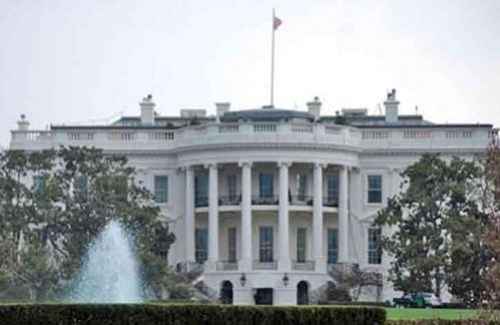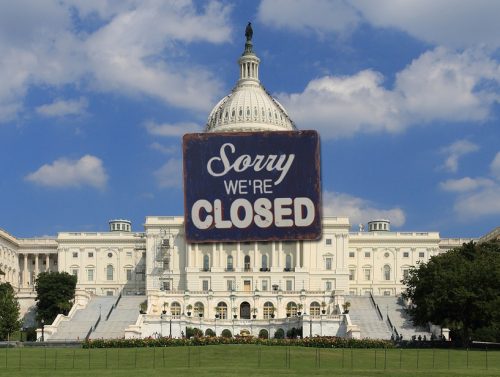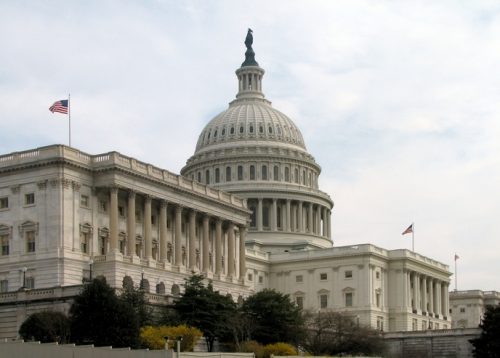 WASHINGTON — President Donald Trump, after failing to win congressional approval for many of his spending and policy priorities for the next five months, said Tuesday the government “needs a good ‘shutdown’ in September” when lawmakers will be debating the 2018 funding plan.
WASHINGTON — President Donald Trump, after failing to win congressional approval for many of his spending and policy priorities for the next five months, said Tuesday the government “needs a good ‘shutdown’ in September” when lawmakers will be debating the 2018 funding plan.
In a tweet, Trump blamed the result of his first fight over federal spending on lawmaking rules in the Senate, where Republicans hold a 52-48 majority. But most major legislation requires a 60-vote super majority in the 100-member chamber for approval, effectively requiring Republican and Democratic lawmakers to reach compromises.
Trump said the reason that Republicans could not prevail on all of his priorities in the trillion-dollar budget plan that pays for government spending through September 30 “is that we need 60 votes in the Senate which are not there!”
The president said his party “either needs to elect more Republican Senators in 2018 or change the rules now to 51 percent. Our country needs a good ‘shutdown’ in September to fix mess!”
The U.S. government has not shut down since October 2013, when many agencies were closed for 16 days in a policy and funding dispute over then president Barack Obama’s national health care reforms.
In this week’s spending negotiations, Trump lost a bid for money to start construction of a wall along the U.S. border with Mexico to thwart illegal immigration, one of his key presidential campaign vows, and there are no curbs on federal grant money for cities that refuse to detain illegal immigrants he wants to deport. Funding for domestic programs sought by opposition Democrats will increase when Trump wanted reductions, while military spending will go up, but not by as much as he sought.
In spite of the budget outcome and his call for a government shutdown in five months, Trump later publicly praised the funding plan.[xyz-ihs snippet=”adsense-body-ad”]“After years of partisan bickering and gridlock, this bill is a clear win for the American people,” he said. “We brought lawmakers together from both sides of the aisle to deliver a budget that funds the rebuilding of the United States military, makes historic investments in border security and provides health care for our minors and school choice for our disadvantaged children. More importantly, there is no long-term bailout for the insurance companies that the Democrats desperately wanted to subsidize — donors — the badly failing Obamacare. “
Rules ‘archaic and slow moving,’ says Trump
Tuesday’s broadside was the second time in recent days that Trump, a New York real estate mogul turned politician accustomed to giving orders to officials working for him and having them carried out, complained about the legislative process in the Senate.
Republican leaders in the Senate abandoned the 60-vote threshold to confirm Trump’s nomination of a conservative jurist, Neil Gorsuch, to the Supreme Court, on a simple majority vote, but have said they won’t do away with the 60-vote requirement on legislative measures.
In an interview over the weekend, Trump said he has found that in Washington “things generally tend to go a little bit slower than you’d like them to go.
“I think the rules in Congress, and in particular the rules in the Senate, are unbelievably archaic and slow moving,” he said. “And in many cases, unfair. In many cases, you’re forced to make deals that are not the deal you’d make. You’d make a much different kind of a deal. You’re forced into situations that you hate to be forced into.
“I also learned, and this is very sad, because we have a country that we have to take care of. The Democrats have been totally obstructionist,” he said. Senate Minority Leader “Chuck Schumer has turned out to be a bad leader. He’s a bad leader for the country. And the Democrats are extremely obstructionist.”
U.S. political analysts agreed with Trump that his Democratic opponents won most of the funding disputes in this week’s budget negotiations.
But the top Republican in the House of Representatives, Speaker Paul Ryan, painted the accord differently, saying that his party’s negotiators had been successful in ending an Obama-era requirement that an increase in military spending had to be matched equally with a boost in domestic funding.
“This is the biggest victory we could have had,” Ryan said. “No longer are the needs of our military going to be held hostage to an increase in domestic spending.”
Source: VOA [xyz-ihs snippet=”Adsense-responsive”]






